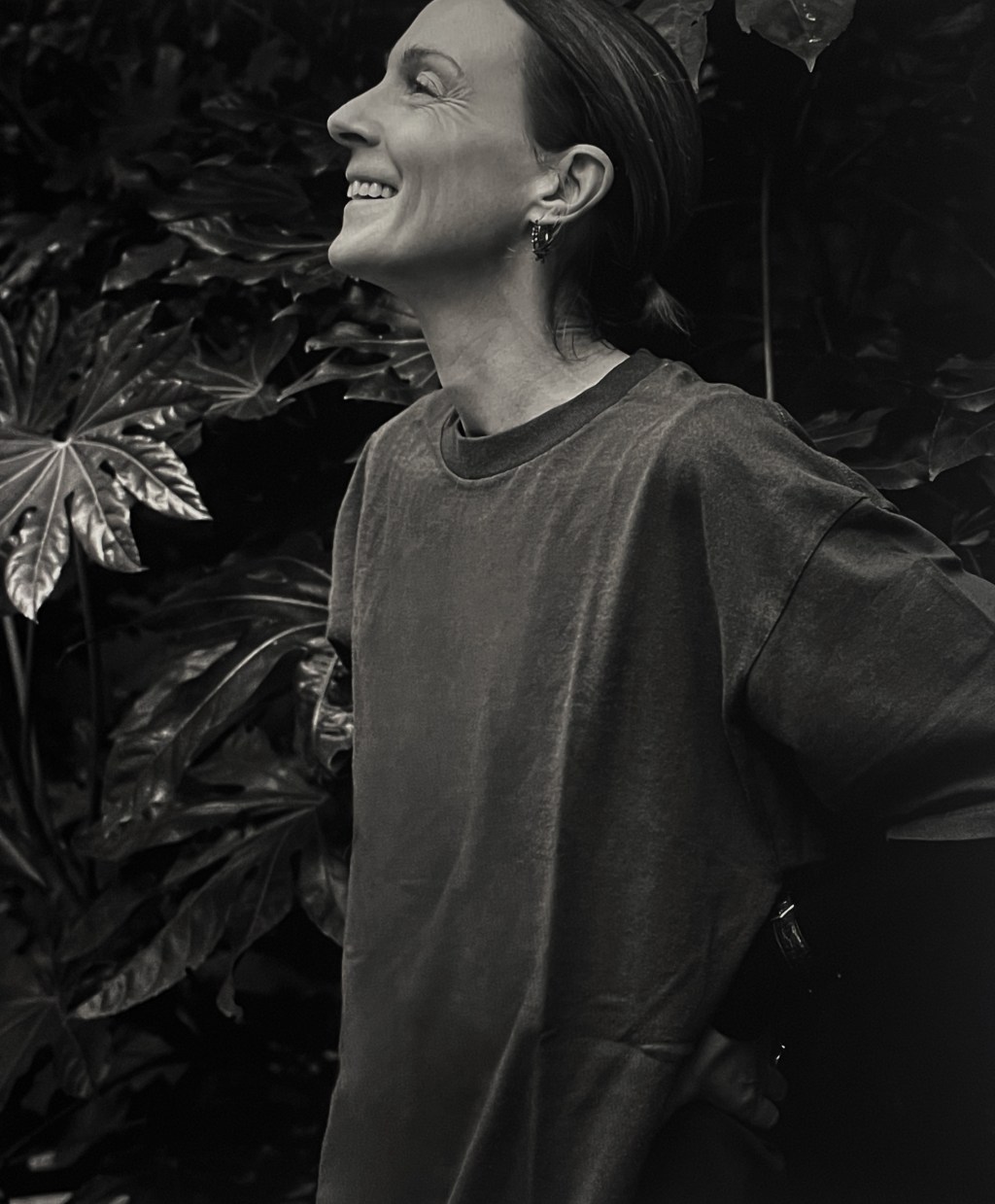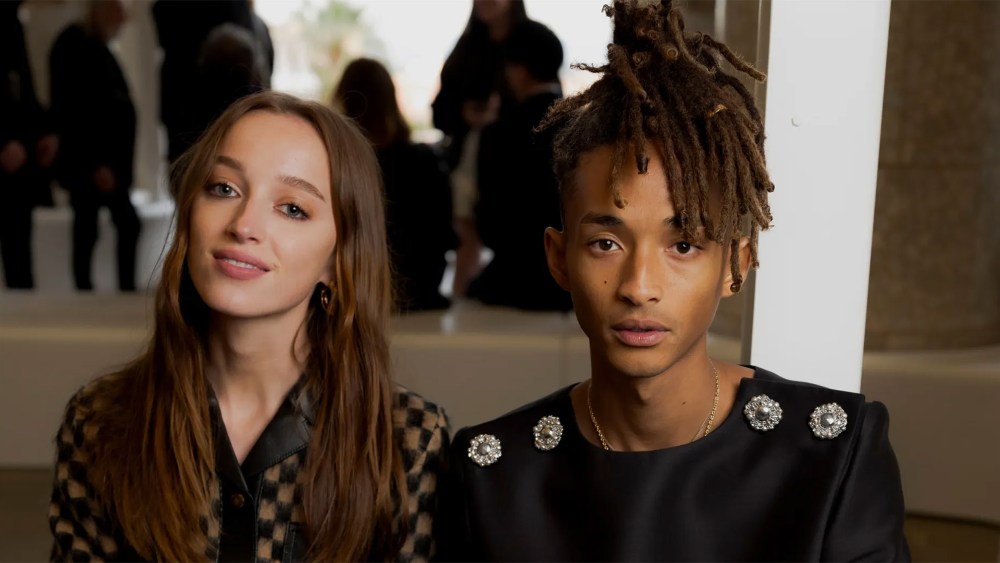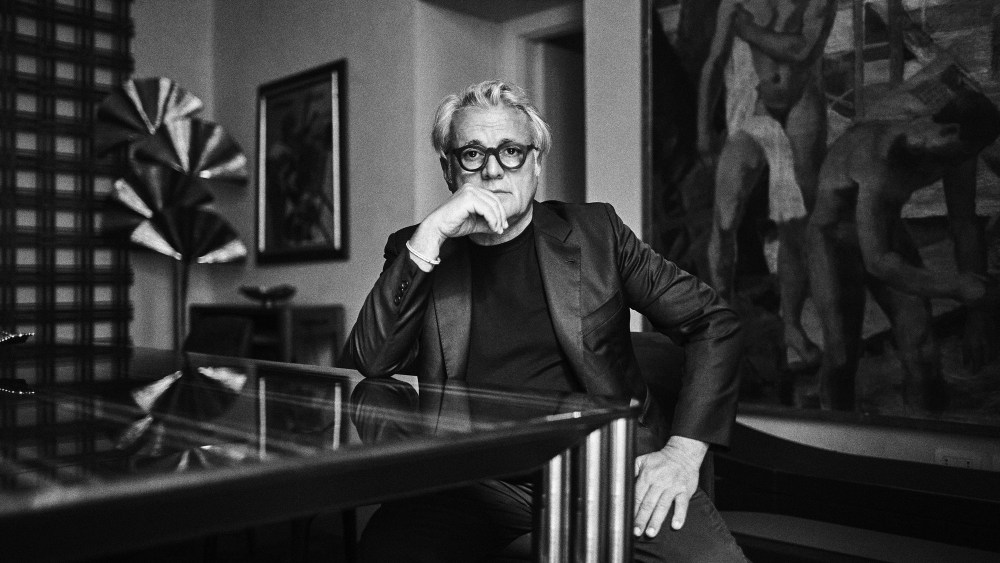No fashion show, no interviews, no advertising campaign, no celebrity placements, no viral video, and no collection notes.
Phoebe Philo returned to fashion this year in stealthy fashion, simply dispatching an email alert that the first output from her new signature fashion house would be available for purchase on her e-boutique from Oct. 30.
It was enough to set off a firestorm of conversation online — mostly positive about her designs, but sometimes critical of the high prices and service — and spark a shopping frenzy that saw most items sell out within a day or two.
The British designer forged a newfangled take on a direct-to-consumer fashion brand: launching all the main product categories at once, but producing them in limited quantities in order to sidestep the biggest blight of the fashion industry.
“As part of our determination to address overall environmental impact, our focus is on the material issues of overconsumption, waste and the fashion supply chain. Our aim is to create a product that reflects permanence,” the fashion house said in a brief statement of bullet points.
“The Phoebe Philo business model is designed to create a responsible balance between production and demand. For us, this means producing notably less than anticipated want,” it added.

Philo considered her first collection — unveiled to select editors at a showroom in London, without the designer’s presence — her debut “edit,” added to her online store in three deliveries, the last of which dropped on Dec. 7.
Dubbed A1, the edit comprised about 150 styles. The second edit, A2, will arrive in spring 2024. Precise dates are still under wraps.
The designer plans to release future edits according to her own schedule, rather than the standardized fashion calendar, as the late Azzedine Alaïa once did. She sees her designs as seasonless and part of a continuous body of work.
Most of the collection is manufactured in Italy. At present, Philo’s online store ships to addresses in the U.K., Europe and the U.S.
Retail prices for A1 range from $1,400 to $2,400 for trousers; $2,200 to $8,500 for dresses; $3,600 to $4,800 for knits; $3,600 to $4,500 for tailored jackets; $6,900 to $12,000 for leather jackets, and $16,500 to $25,000 for shearling jackets. Shoes run from $1,100 to $1,750 and handbags from $3,500 to $8,500.
While price tags like that exist for ready-to-wear at the likes of Bottega Veneta, The Row and Chanel, it became a talking point on social media, and among equity analysts.
“Phoebe’s line started from scratch and her positioning is what it is — in other words diehard fans don’t necessarily have a reference point so if they like her designs and can afford it, she will get away with it,” surmised Erwan Rambourg, global head of consumer and retail research at HSBC. “As her launch has been engineered for scarcity, it will have been seen as a resounding success.”

The 2023 debut felt similar to Philo’s 2009 arrival at the helm of Celine in Paris, when she also hosted a showroom presentation.
At the time she unveiled a clutch of bags that would become iconic and revealed an approach to fashion — minimal in orientation, but spiked with fashion thrills — that attracted a cult-like following among her female customers and spawned a host of would-be Phoebes.
At a time of unrivaled interest in fashion designers, she kept the press at arm’s length and preferred to let the product speak for itself.
Ditto for her new fashion house. She declined to comment for this article and is keeping details about the evolution of her business under wraps.
Her only significant volte face concerns e-commerce, which she steadfastly resisted when she was at the creative helm of Celine, but it is now the sole distribution channel for her designs. She continues to be shy on social media, using her Instagram account, which boasts around 400,000 followers, to give updates on product releases. At press time, there were zero posts.
As her fashion house is privately held, Philo is not obliged to share results, except what is required by law in England.
Companies House, an agency of the British government that maintains the register of companies, lists no financial data, while noting that the next accounts are due on Dec. 31, 2023.
The agency lists five directors, including Philo; Max Wigram, Philo’s husband and cofounder of the fashion house; managing director Patrik Silén; secretary Emma Anthony, and Delphine Arnault, chairman and chief executive officer of Christian Dior Couture.
WWD broke the news in February 2020 that Philo had started planning a new collection and was interviewing designers.
Anticipation began building when Philo officially revealed in July 2021 that she would be returning to fashion with a new, independent house, and with LVMH Moët Hennessy Louis Vuitton as a minority investor.
At the time, she vowed to create clothing and accessories “rooted in exceptional quality” and design.
“Being in my studio and making once again has been both exciting and incredibly fulfilling,” she added in that brief statement. “To be independent, to govern and experiment on my own terms is hugely significant to me.”

One of the most revered — and bankable — designers of her generation, she is probably best known for engineering a brand rejuvenation at that LVMH-owned Celine. Season after season she minted covetable clothes and distinctive handbags, accruing an intensely loyal fan base.
A graduate of London’s Central Saint Martins, Philo was classmates with Stella McCartney and worked with her when McCartney launched her own collection after graduation. Philo followed McCartney to Chloé in 1997 and took the top job in 2001 when McCartney left to set up her own fashion house in a joint venture with Gucci Group.
With her striking personal style, Philo succeeded in accelerating Chloé’s rejuvenation and catapulting it into the high-margin leather goods business.
She became known for fashions that deftly blended masculine elements like trousers with feminine fare such as frilly blouses. During her tenure Chloé’s look was widely emulated by fast-fashion chains and she created hit handbags like the Paddington and Silverado.
She resigned from Chloé in 2006 for personal reasons, citing a wish to spend more time with her young children.
Three years later, after lengthy discussions with LVMH about launching a namesake brand, Philo landed at the helm of Celine. The brand offered an immediate platform for her designs, boutiques in top locations around the world, and factories for leather goods.
There, Philo debuted a more fashion-forward, minimalist aesthetic, tinged with arty touches. Her collections exceeded all revenue expectations and won wide acclaim despite her reticence about e-commerce and an arm’s-length policy with the press.
The designer kept a low profile after exiting Celine at the end of 2017, and still seems to prefer things that way.



